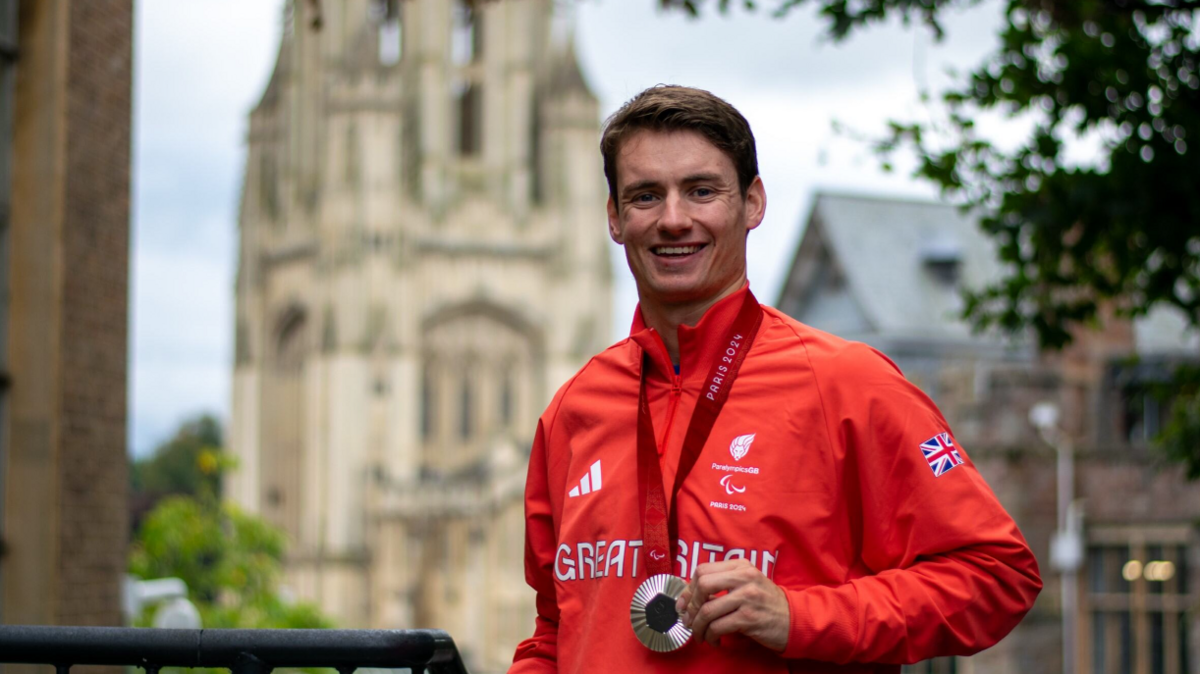'We overcame our differences to reach GB squad'
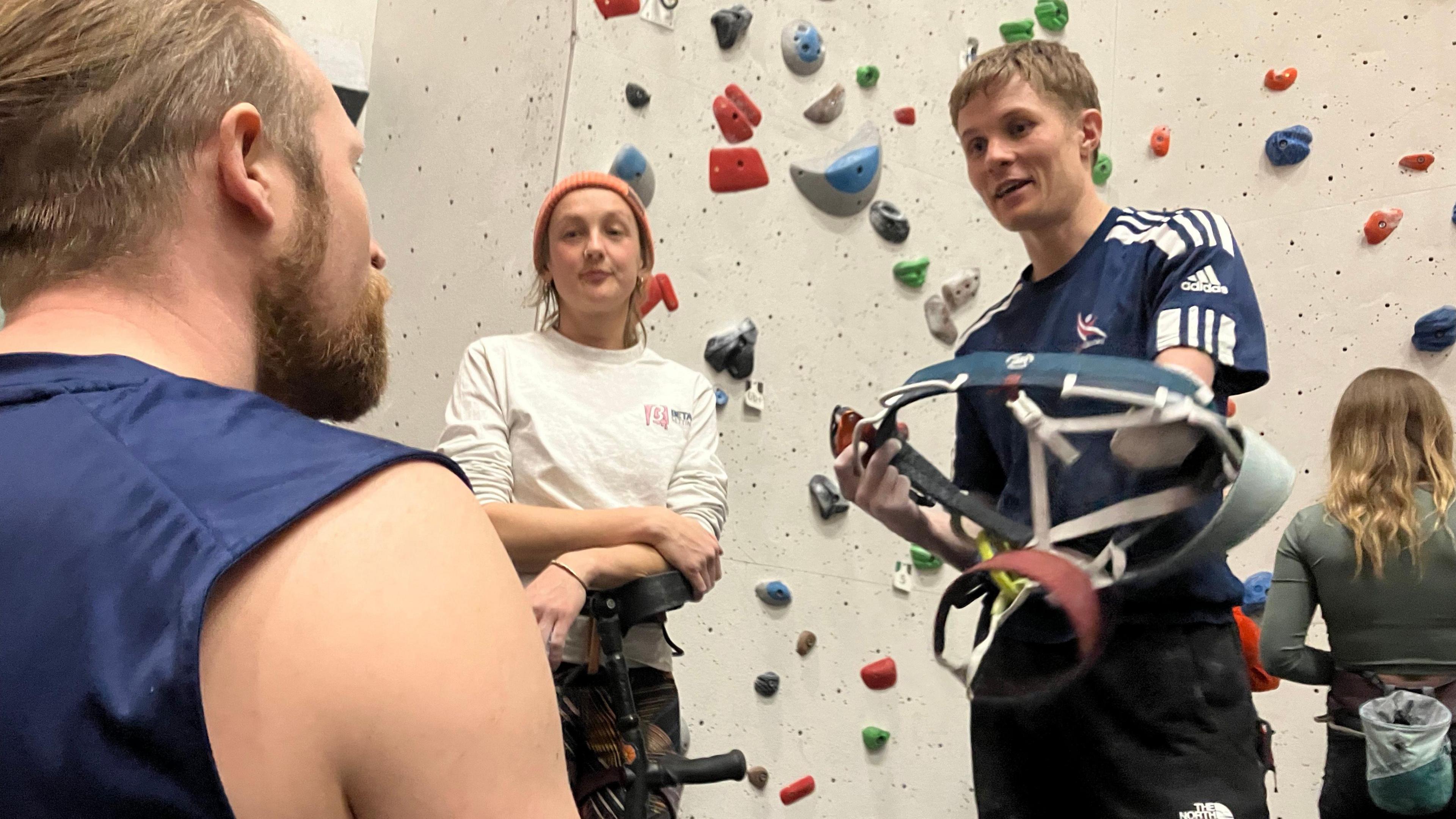
James Rudge (right) set up a community of climbers with impairments
- Published
One man's love of climbing has brought a group of people with impairments together on the climbing wall - with five of them now in the running for Paralympic glory.
GB Paraclimber James Rudge formed a community of climbers - some of whom are registered blind, while others were born without a forearm - and built their confidence to find new ways of tackling the wall.
The group, some said, was the impetus they needed to try the sport - and they returned for the sense of community.
Within a year, four of the group in the West have joined James to become competitive athletes and have been selected for the GB Paraclimbing squad. One of them had only been climbing for a year.
They could go on to compete in the sport's Paralympic debut in Los Angeles in 2028.
Paraclimbing is competitive climbing for athletes with disabilities. All kinds of adaptations are made to help them access the sport, such as modifications to a wall, gripping aids and sight guides.
The BBC went to Redpoint, an indoor climbing centre in Bristol, to find out the impact of the community.
James Rudge
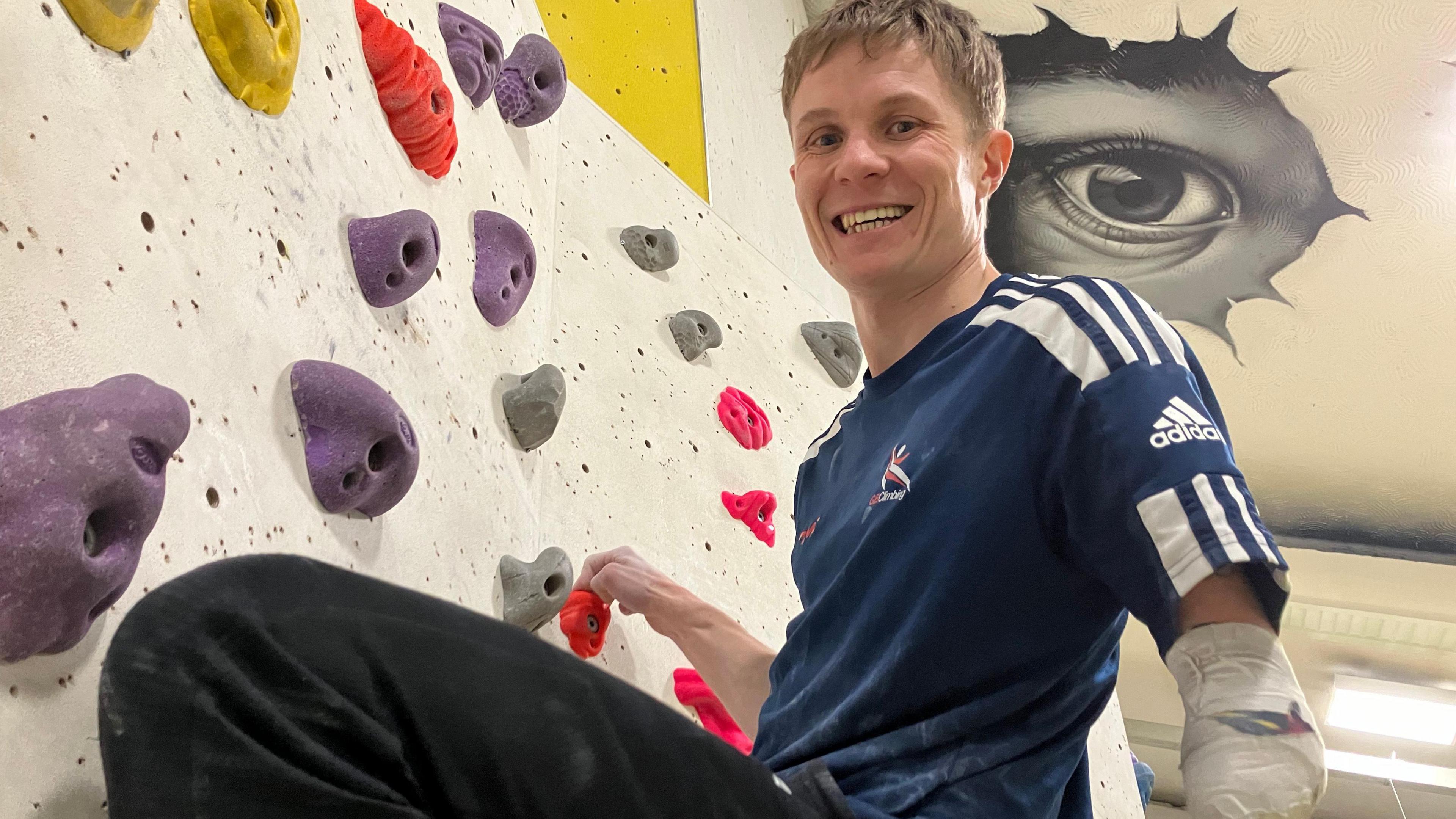
James said he has successfully balanced competing with community
James, who was raised in Bath and lives in Bristol, was born without a left forearm.
He said he was born a thrillseeker and was always "jumping off and climbing up things".
He was selected for the GB squad four years after starting climbing, in 2015.
Since then, he said "everything's been an upward trajectory" and he wanted to help other people.
James, 32, said: "We're all perfectly capable of functioning just fine in society as it is, but I learned how beneficial it can be to have people around you with that same mindset."
James formed the community in February 2024 after realising there was a lack of climbing groups outside of London for people with additional needs.
They meet up at least once a month in Redpoint and Mothership in Bristol, and Frome Boulder Rooms in Somerset. Some members travel from as far afield as Devon and Coventry.
James said: "People were telling me 'you can't be a hardcore athlete and do all this community stuff'.
"I proved them wrong, this is how I'm thriving. If you're a happy climber and you're doing good mentally, then you're going to perform better at the competitions as well."
Charly Andrew
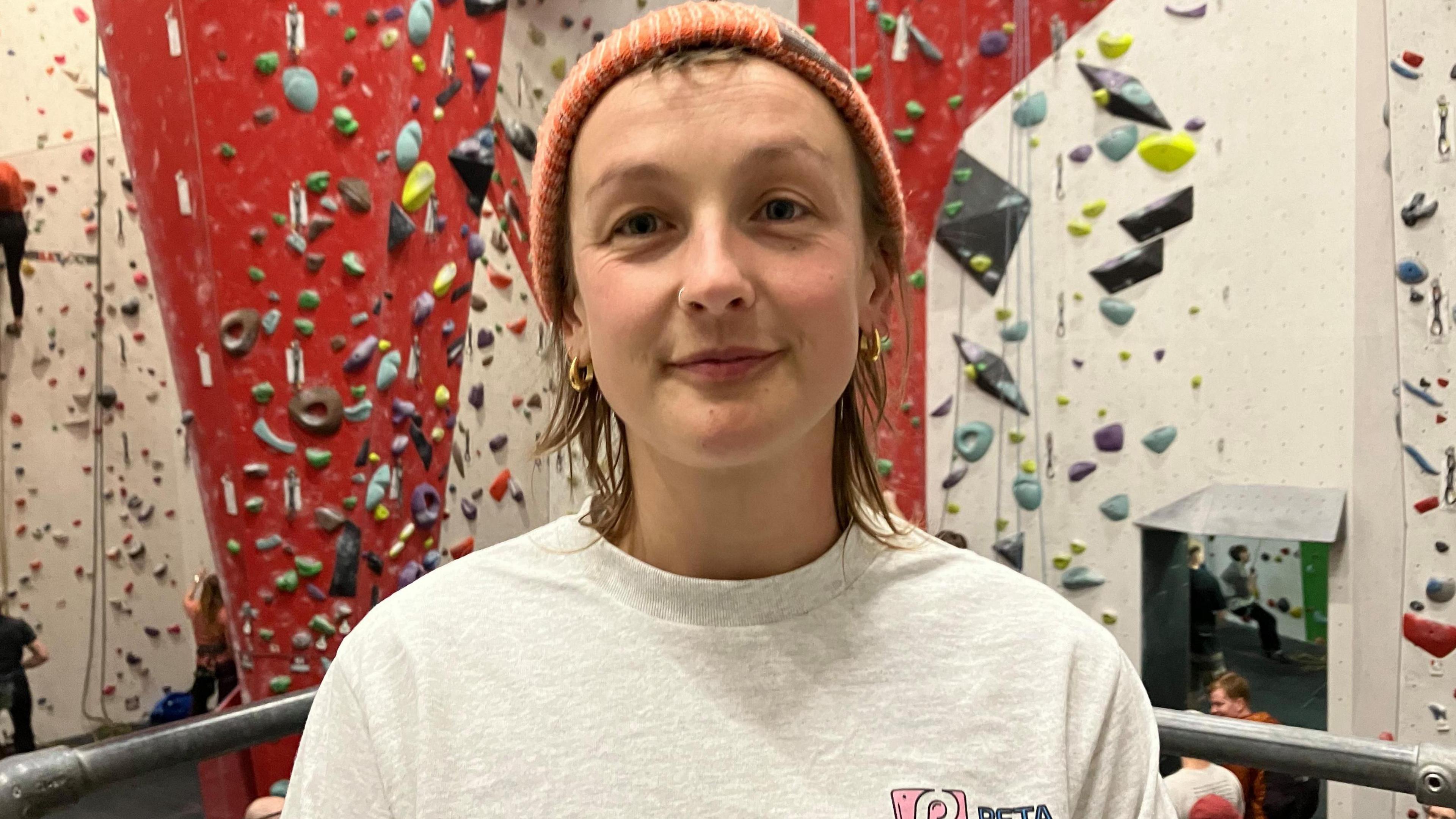
Charly taught climbing abroad before opening Frome Boulder Rooms in Somerset
At 16 years old Charly Andrew was diagnosed with Ewing Sarcoma, a type of bone cancer which meant she had to relearn how to walk.
She told the BBC she had the most aggressive form of cancer treatment a child could have, and surgeons removed a tumour the size of a grapefruit from her pelvis.
She said becoming part of the climbing community has been one of the best things to happen to her.
"I don't think the me of 10 years ago would have believed this was possible at all," she said.
"It's still wild to me it's happening, but it's been one of the best things that's happened in the whole journey of my health."
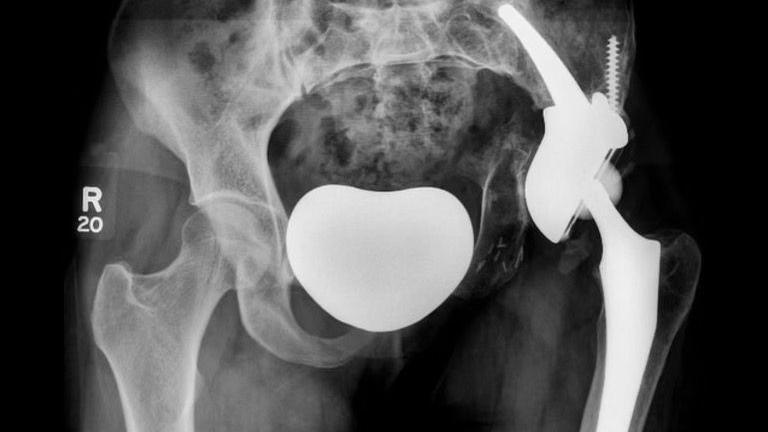
Charly Andrew had a large tumour removed and has a metal plate in her pelvis
Charly spent years in Spain running a climbing hostel with her now partner. They returned to Somerset and opened Frome Boulder Rooms together.
Her first competition was in Scotland in September last year, and it put the 33-year-old's name on the GB squad list.
Charly, from Wiltshire, said "seeing people solve problems in different ways" and spending time climbing with people who "have totally different things going on" is special.
"Everyone has little something extra in life they have to deal with," she added.
Zac Pomphrey
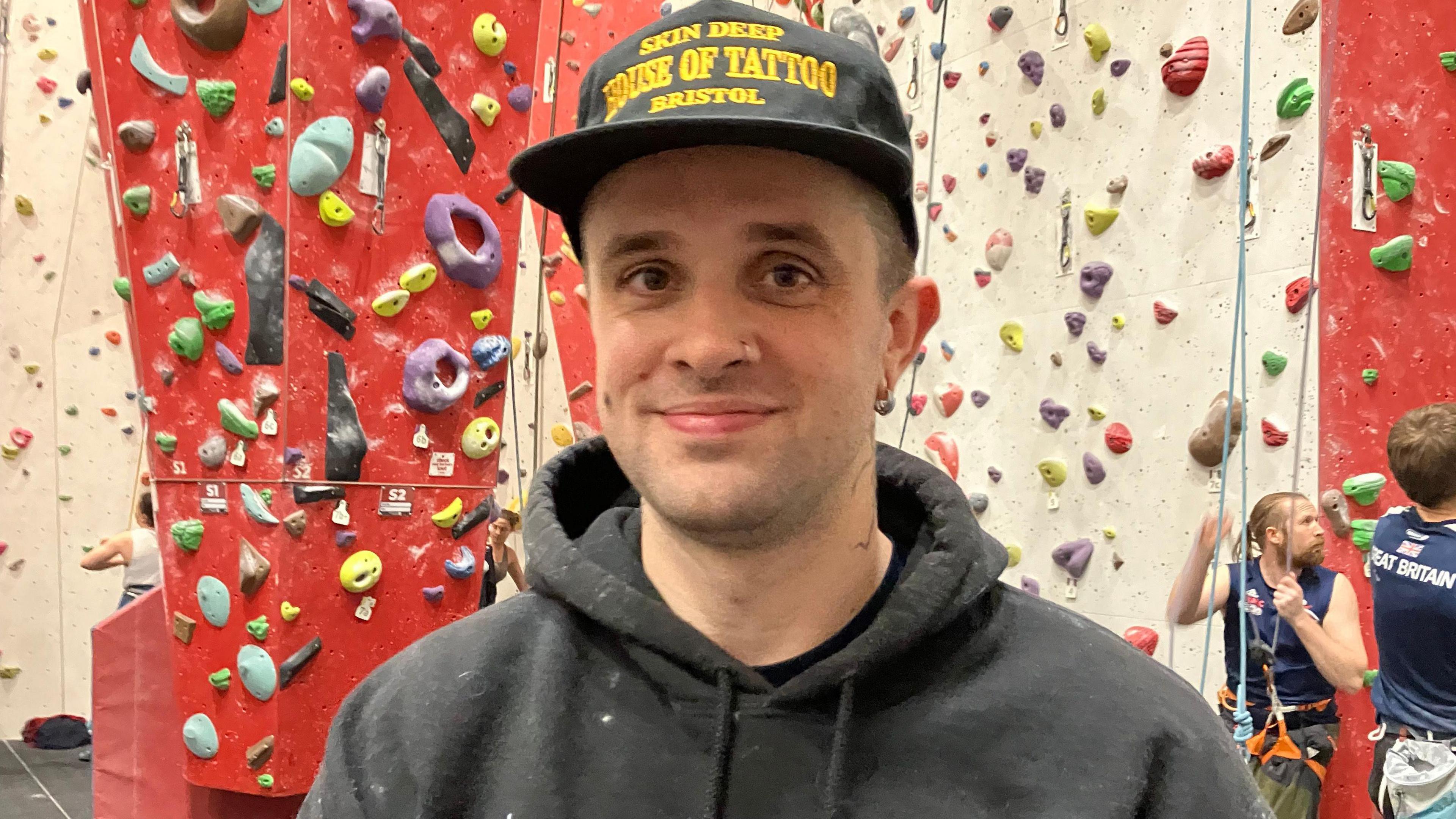
Zac was selected for the GB squad within one year of taking up rope climbing
Similar to James, Zac Pomphrey was born without his right forearm.
He took up rope climbing last year after seeing James and saying to himself "if he can do it, so can I".
"I could count with my hand how many times I've even seen someone with my arm, let alone being in regular communication with someone," he explained.
Zac, from Bristol, said he is "trying to adopt a 'why not?' attitude" as he looks ahead to 2028.
The 30-year-old said: "There's a part of me which gets imposter syndrome that I could be a Paralympian.
"If you told me two years ago I'd be on the GB Paraclimbing team, I'd have laughed in your face."
Emily Wright
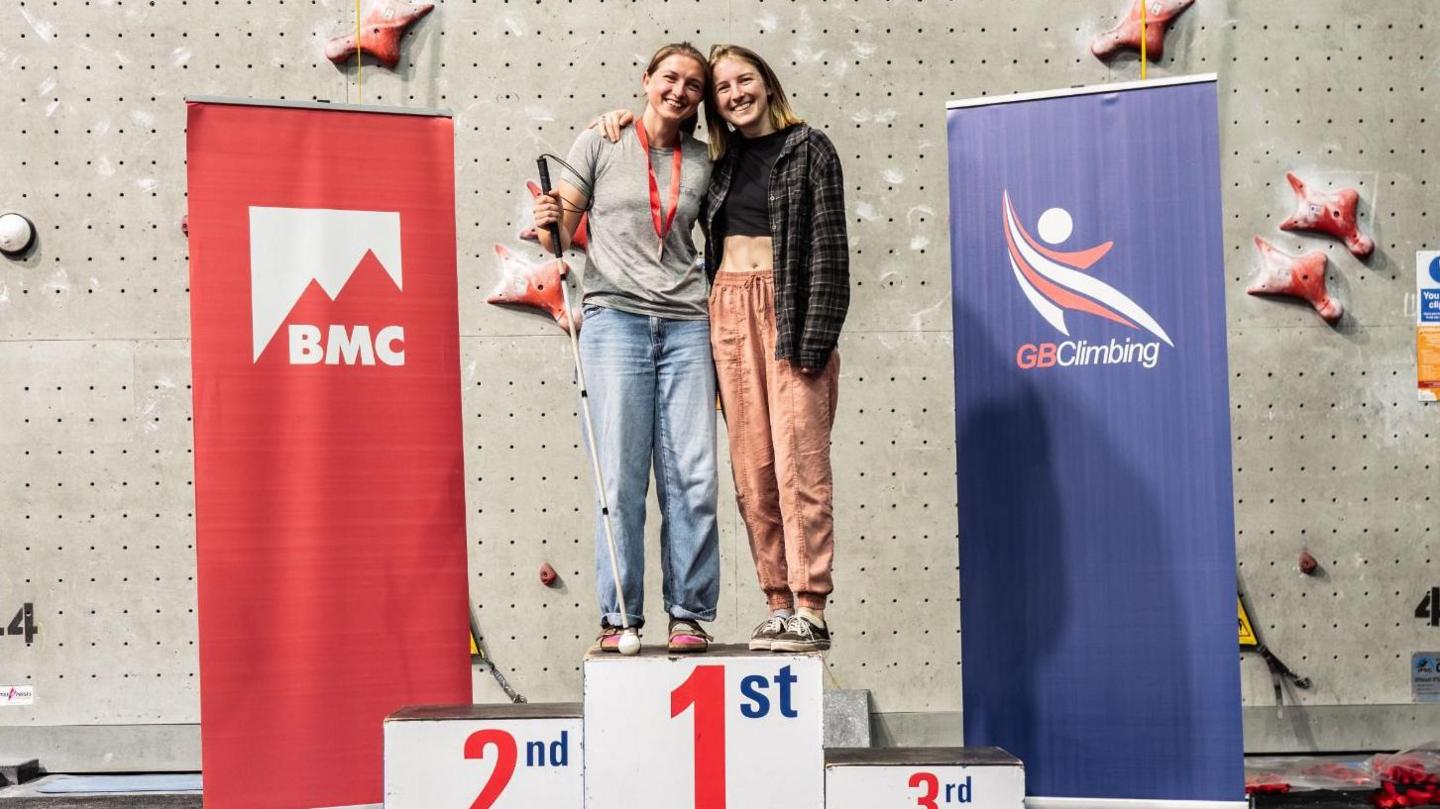
Emily (left) pictured with her sister who has acted as her sight guide in recent years
Emily was born fully sighted but started to lose her vision in one eye at around seven years old.
A year later, she had a seizure and doctors found a cancerous tumour on her optic nerve.
After 18 months of chemotherapy, Emily's vision stabilised but she has no vision in her left eye and tunnel vision in her right.
Emily, 23, who is a former GB Parasailer, had her sister act as her sight guide but now needs a permanent person to help her climb to the top.
She said: "It [the community] really does instil in you that you can give it a go and you can try whatever you want to try.
"You take home so many lessons and skills, it's not just about climbing.
"It's about showing people with additional needs and disabilities can do anything they want to, and anything they put their mind to."
Mark Seurre
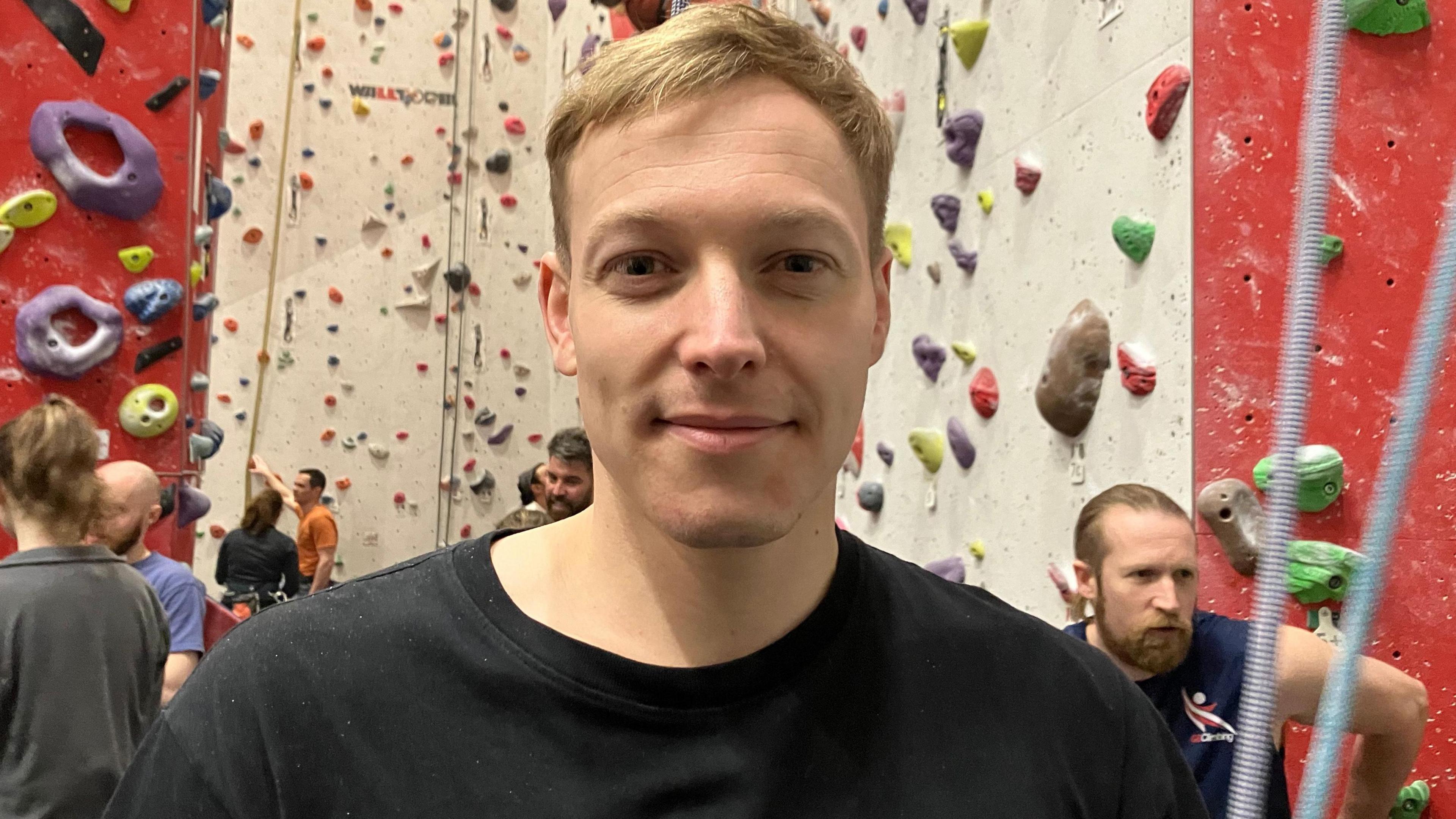
Mark said the community helps him feel "inspired"
Mark Seurre, 32, grew up in Maidenhead, Berkshire with no left elbow and two of his five fingers missing on his left hand.
He said James' community means he can see climbers overcome their differences in their own way, something he has "always had to do".
"I find it inspiring to see other climbers with disabilities overcoming their strengths and weaknesses - applying techniques to get past a route that might normally be set up for an able-bodied person."
'Real chance of medals'
The date for qualifications for the Paralympics is yet to be announced and it is unclear who, if any, of these five athletes will qualify.
But the athletes have joined a team which is ranked fifth in the world.
All will be challenging for silverware in different international competitions later this year in France, Austria and South Korea.
Zoe Spriggins is the Para Team Manager on the British Mountaineering Council, which manages the pathway to GB selection.
She said once they find out the categories her athletes will be judged in they can have a "real credible chance of coming away with a medal" in Los Angeles in 2028.
Get in touch
Tell us which stories we should cover in Bristol
Follow BBC Bristol on Facebook, external, X, external and Instagram, external. Send your story ideas to us on email or via WhatsApp on 0800 313 4630.
Related topics
- Attribution
- Published24 March
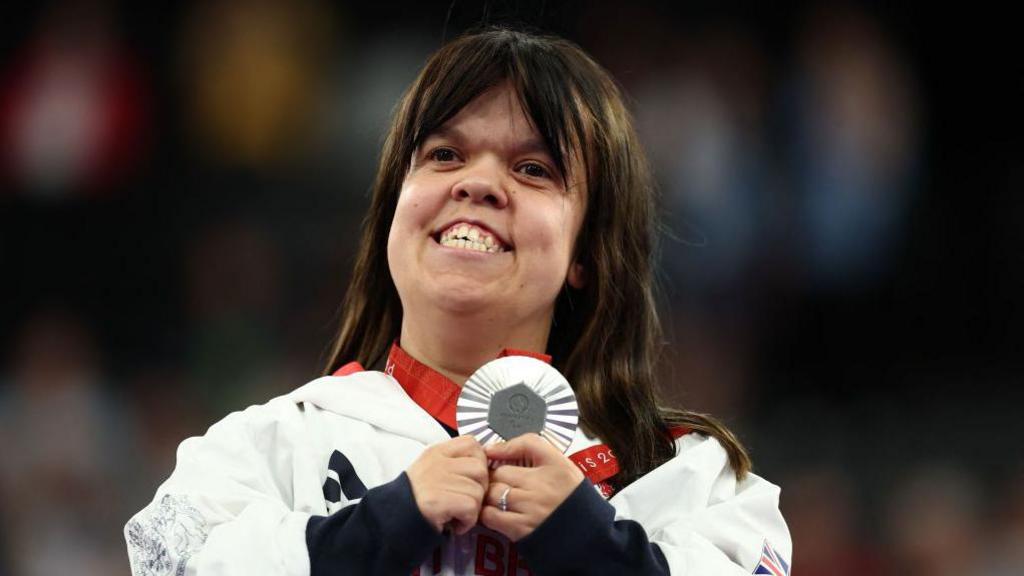
- Published17 January
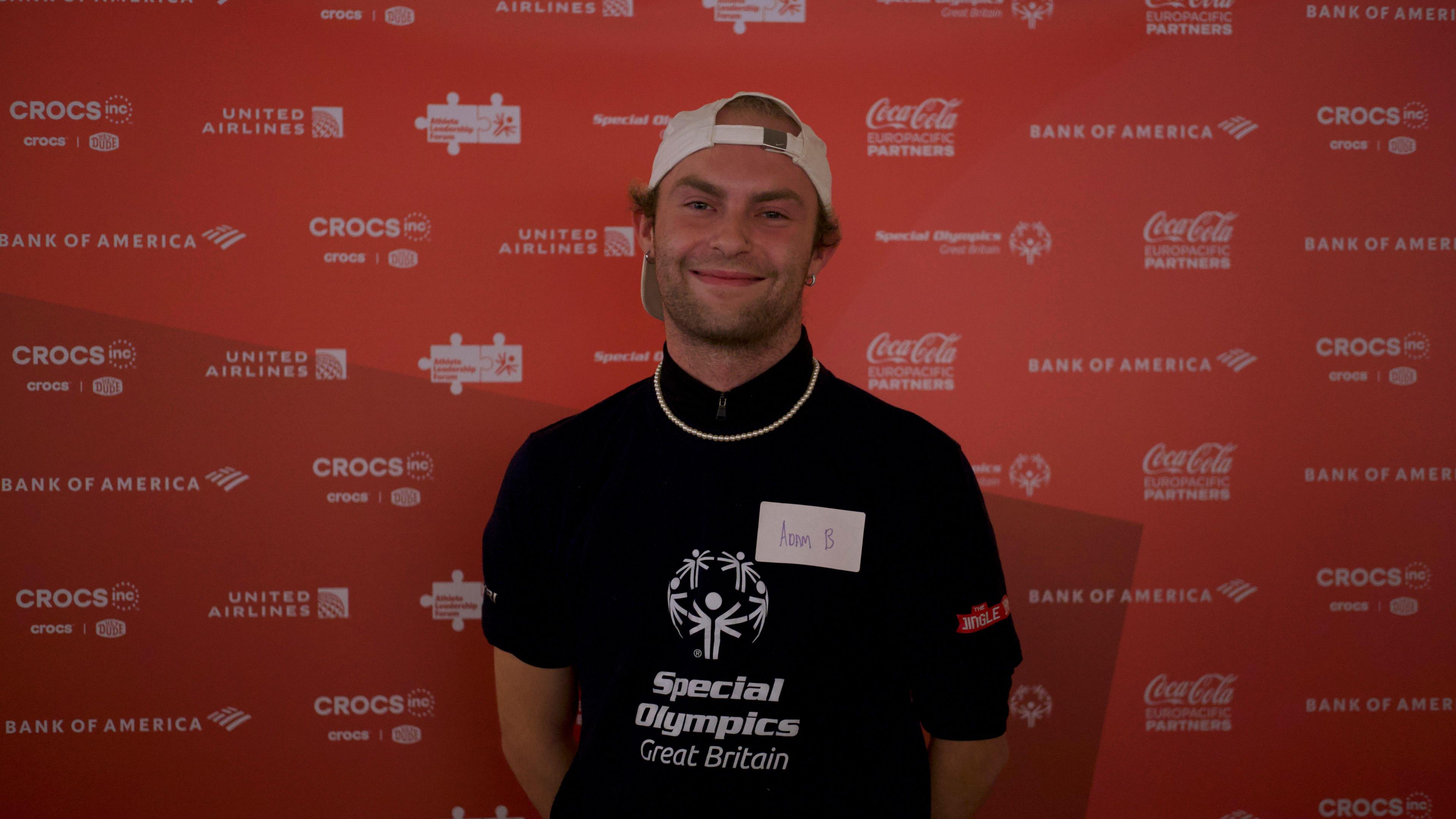
- Published19 October 2024
